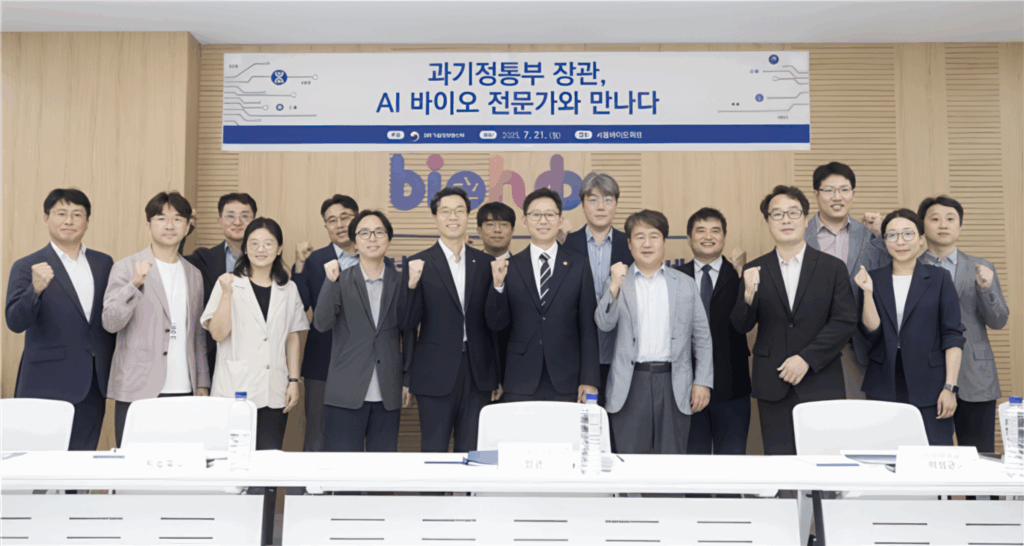The country’s renewed focus on technology could open new doors to those who demonstrate their usefulness, show cultural insight — and move fast

What a difference a year makes.
Political and economic turmoil defined the latter half of 2024 for South Korea, reaching its nadir in December when President Yoon Suk-Yeol tried to impose martial law in an ill-judged power-grab. He was impeached and recently re-arrested, and is currently awaiting trial.
Looking back, the episode that briefly plunged Korea into darkness seems like a bad dream: under Democratic Party leadership, the country’s stock market is the best performing in Asia and, for tech companies, an era of renewed opportunity is dawning.
Two government appointments from the tech world signal this new direction. In June, Ha Jung-Woo, who used to lead Naver’s AI Innovation Center, became the country’s first secretary for AI and future planning, a cabinet-level role; and Bae Kyung-hoon, former CEO of LG AI Research, was appointed minister of science and information and communications technology (ICT).
The goal of hiring people from two of Korea’s biggest tech companies as policymakers is to make the country a serious AI player. The government has pledged more than US$73 billion in funding, with a focus on developing homegrown AI models as well as developing data centres, next-gen GPUs, chip R&D and of course talent.
Korea is charting its own course towards AI sovereignty, one that emphasises technological self-reliance, cultural specificity and strategic control over infrastructure and data. The emphasis on building Korean LLMs and infrastructure seems driven by a desire not just to be untethered from foreign platforms but to ensure services accurately reflect local language, culture and cybersecurity needs. Korea also sees a chance to reinforce its overall tech industry by building hardware and software synergy between chips, AI models and applications. There are hopes that Korea could emerge as a Top 3 AI player by the end of the decade, potentially exporting both chips and foundation models tailored for Asia.
Where does this leave multinationals? For one thing, we can expect the dynamic, real-world demands of the tech sector to be more sensitively reflected in public policy. We can also expect regulatory innovation, with policies that emphasise speed and practicality. That is cause for optimism for everyone from homegrown startups to global tech companies.
In theory, the expansion of Korea’s digital infrastructure and AI-led growth strategy creates a welcoming environment for global companies with useful technology. This especially applies to those in government-designated “strategic” industries like AI, semiconductors, bio-health, aerospace and defence. There’s also great potential for brands offering enterprise SaaS or ESG-related tech solutions.
At the same time, with ‘sovereignty’ likely to become a dominant policy theme, foreign players will need to put extra effort into demonstrating how they contribute to Korea’s national agenda and value chain within specific ecosystems. Doing this well could open expanded partnership opportunities.
Globally-skewed product promotion or case studies will be a non-starter. Instead, global companies should think in terms of messaging that positions thems as growth partners rather than external vendors; shows respect for local R&D and data sovereignty, emphasising alignment with national priorities; and communicates contribution to public value and ecosystem development, not just commercial benefits, e.g. ‘To strengthen Korea’s AI capabilities, we’re investing in local data centres and actively hiring local talent’
Getting the government onside should be top priority. As the national agenda takes shape, there are several steps multinationals can take. One is showing thorough understanding and respect for policy directives, not through blind acceptance but by taking an informed, collaborative approach. Another is strengthening local partnerships and CSR initiatives. Such programs cannot be for show but must show tangible support for Korean society. Then it pays to pursue both open and closed-door engagement models, the former to invite technical discussion with journalists, the latter for high-level briefings with officials.
No one knows exactly where this new direction will lead, but that’s part of its appeal. The more uncertain the environment, the greater the opportunity for brands that can adapt quickly. Should some multinationals start to scale back, more agile and localisation-focused players are likely to attract interest as viable alternatives.
From a communications perspective, we see a window of first-mover advantage. With policy shifting rapidly and market dynamics being reshaped, the chance to define a brand’s position and build key relationships is time-sensitive. Speed and field intelligence will count for more than sheer corporate scale. To build trust with local media and policymakers, global companies must move beyond headquarters-led comms models and adopt locally-driven, strategic PR initiatives. As we always remind our clients: APAC is far from being a single market. Korea in particular stands out as a market where cultural acuity is vital.
Multinational’s looking to be part of an already tech-driven country’s next phase of tech-drivenness could do worse than investing in the following areas:
- Raising awareness of the brand’s position on key policy issues such as AI, semiconductors and ESG
- Building opinion leadership among specialised media and policy stakeholders
- Enhancing local content and media engagement, strategically reframing overarching messages for the Korean context
To earn a seat at the table, global companies must show they’re not just in Korea but for Korea, moving with the urgency, insight and cultural intelligence that Korea’s fast-moving tech ecosystem demands. Those who hesitate may find themselves permanently out of sync — and ultimately, out of the conversation.

